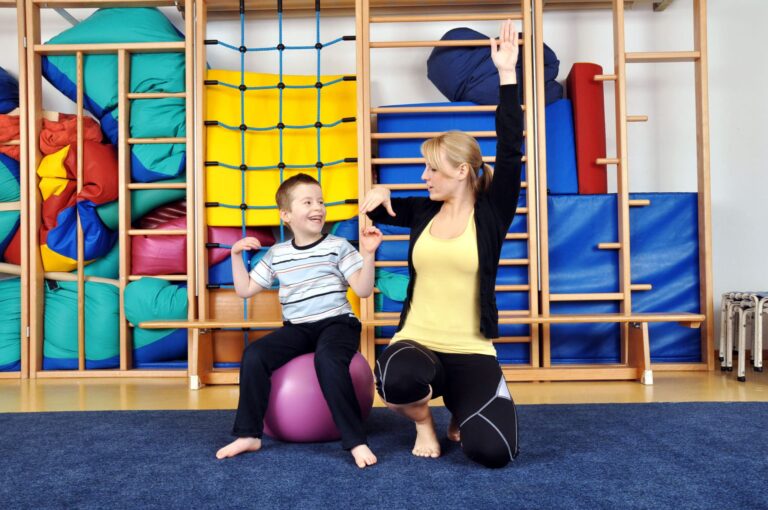Service Details

Occupational Therapy: An Overview
What is Occupational Therapy?
Occupational therapy (OT) is a therapeutic practice that helps individuals develop, recover, or maintain the skills needed for daily living and working. In the context of pediatric care, occupational therapy focuses on helping children with physical, sensory, or cognitive challenges to enhance their ability to perform everyday tasks, fostering greater independence and participation in various activities.
Why is it Important?
Occupational therapy is crucial for children who face developmental delays, physical disabilities, or difficulties with sensory processing. By addressing these challenges early, OT helps children develop essential skills that improve their quality of life, allowing them to engage more fully in school, play, and social interactions.
Who Can Benefit?
Pediatric occupational therapy is beneficial for children with a wide range of conditions, including:
Developmental Delays:
Children who are behind in reaching developmental milestones such as sitting, walking, or talking.
Autism Spectrum Disorder (ASD):
Children who need help with sensory processing, social interactions, or fine motor skills.
Cerebral Palsy: Children who require support in improving muscle control, coordination, and daily living skills.
Sensory Processing Disorders:
Children who are overly sensitive to stimuli or have difficulty interpreting sensory information from their environment.
Learning Disabilities :
Children who struggle with tasks such as writing, organizing, or paying attention in school.
Physical Disabilities: Children who need assistance in developing strength, coordination, and mobility.
What Does Therapy Involve?
Pediatric occupational therapy is highly individualized and may include a variety of activities and exercises designed to meet the specific needs of the child. These may include:
Fine Motor Skills Training:
Activities to improve hand-eye coordination, grip strength, and dexterity, which are essential for tasks like writing, dressing, and feeding.
Gross Motor Skills Development:
Exercises to enhance balance, coordination, and strength, helping children move confidently and safely.
Sensory Integration Therapy:
Techniques to help children process and respond to sensory information more effectively, reducing sensitivity or improving focus.
Self-Care Skills:
Training in daily living activities such as dressing, brushing teeth, or using utensils, fostering greater independence.
Adaptive Equipment Training:
Introducing and teaching the use of tools and devices that can aid in performing tasks more easily.
How Does It Help?
Occupational therapy supports a child’s ability to participate in meaningful activities at home, school, and in the community. By developing the necessary skills for daily life, OT helps children build confidence, achieve greater independence, and enhance their overall well-being. Additionally, occupational therapists often work closely with parents, teachers, and other caregivers to ensure that the strategies and exercises used in therapy can be integrated into the child’s daily routine.
In summary, occupational therapy is a vital service that empowers children to overcome challenges, achieve their developmental goals, and lead more fulfilling lives. Through personalized intervention, OT provides the tools and support necessary for children to thrive in all aspects of their daily lives.
Frequently Asked Question
We offer a wide range of therapies, including occupational therapy, speech therapy, behavioral therapy, and sensory integration therapy.
If your child is showing delays in developmental milestones, difficulties in communication, or behavioral challenges, a consultation can help determine if therapy is beneficial.
The first session typically involves an assessment to understand your child's needs, followed by setting goals and creating a personalized treatment plan.
The duration of therapy varies depending on the child's individual needs and progress, and will be regularly reviewed by the therapist.
Yes, we provide regular progress reports to keep you informed about your child's development and the effectiveness of the therapy.
We offer guidance and activities for parents to reinforce therapy goals at home, ensuring consistent progress.
While it’s not always required, parental involvement is encouraged as it can enhance the therapy’s effectiveness and support the child’s development.
We offer both one-on-one and group sessions, depending on what is most appropriate for the child’s needs.
Our therapists are well qualified professionals with specialized training and experience in their respective fields.
Coverage varies by insurance provider, and we can assist you in understanding your benefits and how they apply to our services.
